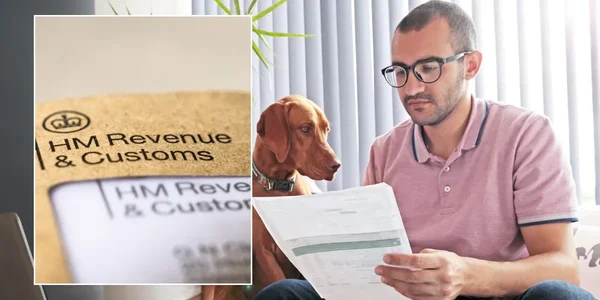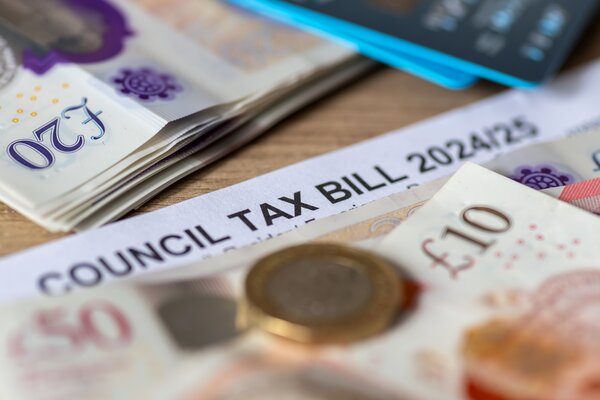All You Need to Know
Cryptocurrency taxation might seem confusing, but HMRC has clear guidelines about when your digital assets are taxable. Whether you’re dabbling in Bitcoin or deeply invested in a portfolio of altcoins, understanding your tax obligations is essential. You may need to pay taxes on your crypto gains, even if you don't convert your assets to pounds.
Many crypto investors are surprised to learn they might owe tax even without converting to pounds. The tax implications for crypto taxes extend beyond just selling for profit or when someone sells crypto assets.
Do You Pay Tax on Cryptocurrency in the UK?
Yes, you do pay tax on cryptocurrency in the UK. HMRC doesn’t consider crypto as currency but as a type of investment asset subject to Capital Gains Tax when you make profits. However, if you are classified as a crypto trader or your activity is considered a financial trade, you may be subject to income tax and national insurance contributions on your trading income and trading profits.
If you mine coins, receive staking rewards, or get paid in crypto, you’ll likely need to pay Income Tax instead. Mining income, staking rewards, and employment income received in crypto are considered taxable income and may be subject to national insurance. There’s no special “crypto tax” – just the standard tax rules applied to your digital assets.
The amount of tax you’ll pay depends on your overall income, how much profit you make, your tax bracket, and your normal income tax rate. The trading allowance may apply to small amounts of trading or miscellaneous income. HMRC is getting increasingly sophisticated at tracking crypto transactions.
Crypto traders should keep detailed records to determine if they owe capital gains tax or income tax, and trying to avoid paying tax can lead to penalties.

When Do You Need to Pay Capital Gains Tax on Crypto?
You’ll need to pay Capital Gains Tax whenever you “dispose” of your cryptocurrency. This happens more often than you might think.
Selling your Bitcoin for pounds is obviously taxable if you make a profit. The capital gain is calculated as the difference between the disposal proceeds and your original cost (cost basis), and you may need to pay CGT on the taxable gain. You may owe capital gains tax on your crypto capital gains if you exceed the annual allowance.
But swapping one cryptocurrency for another – like trading Ethereum for Solana – is also a taxable event. When calculating your net capital gains, you can deduct transaction fees directly related to buying or selling crypto. Make sure to keep records of all transaction fees and any bank account transactions used to fund or receive proceeds from crypto disposals.
Using crypto to buy goods or services counts as a disposal too. That means technically, even buying a coffee with Bitcoin could trigger a tax liability if your coins increased in value.
Keeping a capital gains summary and accurate records is essential for reporting to HMRC. If you have UK assets as a non-domiciled individual, different rules may apply.
When Does Crypto Trigger Income Tax?
If you’re earning new coins rather than just trading existing ones, you’re likely looking at Income Tax rather than Capital Gains Tax.
Mining rewards are typically taxable as income at their pound value when you receive them. Mining income is considered either trading income or miscellaneous income depending on the scale and nature of your activity, and may be subject to national insurance contributions if classified as trading income.
The same goes for staking rewards from proof-of-stake cryptocurrencies. Some staking rewards may be treated as savings income, but most are considered taxable income and must be reported accordingly.
Trading profits from crypto activities are added to your overall taxable income and may affect your tax bracket.

How Much Tax Will You Pay on Your Crypto?
For Capital Gains Tax, basic rate taxpayers pay 10% on crypto profits. Your overall tax bill depends on your tax bracket and the amount of crypto capital gains you realize. Higher and additional rate taxpayers pay 20%.
Everyone gets an annual tax-free Capital Gains allowance – currently £6,000 for the 2023/24 tax year. This was previously £12,300, so it’s a significant reduction. The trading allowance may also apply to small amounts of trading profits or miscellaneous income from crypto activities.
If you’re running a crypto business, Corporation Tax might apply instead. The current rate is 25% for profits over £250,000, and trading profits are subject to corporation tax if the business is incorporated.
I once helped a client who was shocked to discover he owed £8,000 in tax after casually trading crypto throughout the year. He hadn’t realised each trade was a taxable event. Using tax strategies can help reduce your overall tax bill on crypto gains.
Transferring Crypto: Is It Taxable?
Transferring crypto between your own wallets or between different exchanges under your control is not a taxable event, as you still own the crypto asset. However, if you transfer crypto to another person such as a friend, family member, or as part of a business transaction this may be considered a disposal for capital gains tax purposes. In these cases, you could be subject to capital gains tax on any profit made since you acquired the asset.
If you’re transferring crypto as part of a trade or business, the transaction may also be treated as a taxable event, potentially triggering tax implications. It’s important to keep comprehensive records of all crypto transactions, including transfers, to accurately assess your tax position.
For complex situations or if you’re unsure about the tax treatment of a transfer, it’s wise to consult a tax professional to ensure you’re meeting your obligations and not overlooking any potential tax liabilities.
Common Crypto Tax Myths Debunked
“I only pay tax when I convert to pounds” – False. Crypto-to-crypto trades are taxable disposals too.
“HMRC can’t track my crypto” – Increasingly untrue. Tax authorities are using blockchain analysis tools and getting data from exchanges. HMRC is actively seeking to identify unpaid tax on crypto assets and may request a crypto tax report from individuals to ensure compliance.
“If I don’t withdraw to my bank, it’s not taxable” – Wrong. The taxable event happens when you dispose of the asset, not when you cash out. Staying compliant with crypto taxes means understanding all taxable events, not just withdrawals.
“Losses don’t matter for tax” – Actually, reporting losses is important. Including losses in your tax report is essential for accurate crypto taxes, as they can offset gains and reduce your tax bill.

Record-Keeping for Crypto Tax
Good record-keeping is essential for crypto tax compliance. For each transaction, you need the date, type of transaction, and pound value at the time. Generating a crypto tax report or capital gains summary is much easier if you keep detailed records from each crypto exchange.
Keep track of the fees you pay as these can be added to your cost basis. Transaction fees can be included in your tax report to reduce your taxable gains.
HMRC requires you to keep records for at least five years. This is counted from the 31 January submission deadline for the relevant tax year.
If your records are incomplete, reconstructing your crypto tax history can be extremely difficult. Having records of your bank account transactions can help verify your crypto activity. Many traders find this out the hard way.
Final Thoughts
Crypto taxation in the UK follows established principles, but applying them to digital assets creates unique challenges.
Staying on top of your crypto tax obligations prevents nasty surprises and potential penalties from HMRC.
As the crypto market matures, expect more detailed guidance from HMRC. There may also be more stringent reporting requirements in future.
If you’re actively trading or have a substantial crypto portfolio, consider using specialised software. Seeking professional tax advice and implementing effective tax strategies can help you optimize your crypto taxes. Consulting a tax professional familiar with digital assets is also wise.
Generating a crypto tax report or tax report is essential for HMRC compliance.

Pie.tax: Simplifying Crypto Tax
Getting your cryptocurrency taxes right shouldn’t require a computer science degree or hours of spreadsheet wrangling. The UK’s first personal tax app, Pie, makes compliance straightforward with user-friendly tools.
Our platform connects directly to major exchanges and wallets, automatically importing your transaction history. Pie generates a comprehensive crypto tax report and capital gains summary for your records.
We handle complex UK-specific rules like the 30-day bed and breakfasting rule. We correctly identify which acquisition costs to use for disposals and account for transaction fees that reduce taxable gains, these fees are automatically included in your tax report calculations, whether incurred on a crypto exchange or during transfers.
The dashboard gives you a clear overview of your potential tax bill throughout the tax year. This allows you to make informed decisions about when to sell or hold assets.
Explore the Pie app if you’d like to see how we can take the stress out of crypto taxation. Pie helps you stay compliant with UK crypto taxes by streamlining the reporting process.

Steps to Enter Your Capital Gains Details for Self-Assessment
Managing your capital gains income effectively is essential for accurate tax reporting and financial planning. Follow these detailed instructions to keep your income accounts up-to-date:
Tap ‘Quick Add’ on the navigation bar, then select ‘Create Income Type’ to get started. Choose ‘Capital Gains’ and follow the prompts to enter your asset details.Add Your Capital Gains in the Pie App

Choose ‘Capital Gains’, select your asset type, and enter your gain or loss with any expenses. Review your summary, declare child benefits if needed, and hit ‘Submit to HMRC’ from Tax Overview.Submit Your Capital Gains to HMRC











